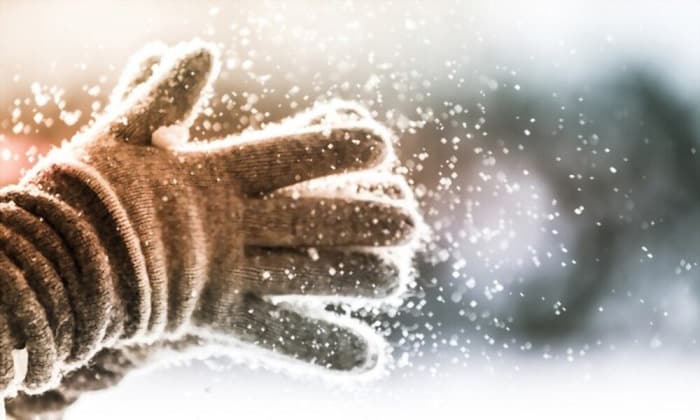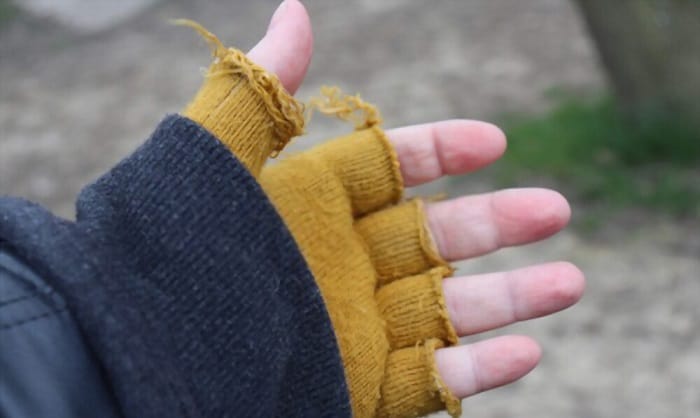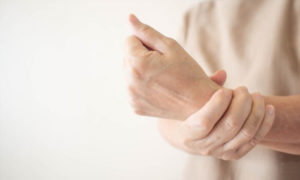Gloves are supposed to protect our hands from various hazards, including cold temperatures. However, when putting the pairs on, many do not feel the immediate warmth they expect. For some people, it feels like their hands got colder long after they put on the gloves.
It might happen to you too and make you wonder, “why do gloves make my hands colder?” The reasons are many: it might be because of the glove design and material, or it might be the signs of your health issues.
Table of Contents
Why Don’t Gloves Keep My Hands Warm
1. Poor-quality gloves
A pair of gloves made of poor-quality materials do not necessarily make your hands cold, but it surely does not offer enough warmth, especially in harsh weather conditions. Therefore, we have the feeling that our hand gets colder and colder by the minute.
The most common glove fabrics used for insulated gloves are fleece, wool, and synthetics. If you wear thin and cheap gloves made of poor insulation materials, you might feel numb and uncomfortable in the freezing cold.
2. Fingerless gloves
It is understandable that fingerless gloves don’t keep hands warm as effectively as standard pairs with full coverage. When you work in a cold warehouse, for example, direct contact with cold equipment or objects makes you feel worse since your fingers are exposed.
Therefore, for any tasks in freezing conditions, make sure to wear extra layers of thin gloves to ensure both dexterity and warmth. Or, if you have to wear fingerless gloves, choose those made of breathable, soft, moisture-wicking fabrics with a good fit and a tight closure.
3. The gloves are too tight, too large, or too short
When the gloves are too tight, we risk limiting our blood circulation. This often happens with synthetic gloves that get tightened when absorbing moisture. Leather gloves also shrink when in contact with a little heat, so your current pair might not be the same as when you bought them.
Furthermore, it is obvious that when our mittens or glittens are too large or do not feature long-enough cuffs, the winter cold can easily attack our hands.
The wind and snow also enter the gloves when we wear a loose pair of gloves over our large-sized watch. Without a snug and long glove wrist/cuff, we are more likely to feel cold even with the gloves on.
4. Health conditions
You should also consider the possibility that your hands feel cold even with warm cotton gloves or thermal gloves because of a health issue.
Health conditions that result in cold fingers are many, including:
- Raynaud’s syndrome affects the blood circulation, which makes fingers feel cold, numb, and tingling.
- Hypothyroidism is a condition which, when worsening, might cause joint paints as one of its complications. It makes people more sensitive to the cold.
- Frostbite occurs when your skin and tissues are exposed to the extreme cold for too long that you feel the skin pricking. This severe condition can damage your skin if not treated properly.
- Vitamin B-12 deficiency can also result in the cold and numb feelings in our feet and hands. We also feel fatigued without the appropriate intake of this type of Vitamin, which is available in fish, meat, eggs, and other dairy products.
- Smoking contributes to the narrowing of your blood vessels, which affects blood circulation. As a result, frequent smoking can make our hands feel numb and colder than usual.
Some other conditions that you might want to pay attention to are Anemia, Lupus, Arterial diseases, Scleroderma, and Carpal tunnel syndrome.
Conclusion
So, for the question ‘Why do gloves make my hands colder?’, the clues are plentiful. You should consider all the possibilities before making a change to your gloves, buying a new pair, or visiting the doctor to monitor your health better.
However, do not worry so much as maybe it’s just that the weather conditions are too extreme. Sometimes, our body cannot regulate itself quickly enough to protect us from feeling too hot or cold after sudden exposure to extreme temperatures.

This is Edward Manning, the editor in chief of Construction Informer. Quite a bit of my time is spent researching the market and interviewing experts in the field so that I can give you reliable information.




